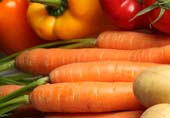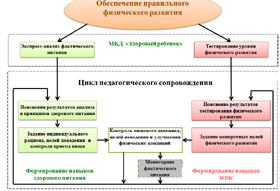|
Breath.ru - It's good thinking to start with breakfast
|
| |
It's good thinking to start with breakfast
|
|

Eating breakfast does more than satisfy hunger pangs - it may even help you think. Like any other part of your body, your brain needs food to help it work well, and studies have found that both children and adults who eat breakfast are better at concentrating and remembering things while working or studying. They're also more likely to have a healthier diet - eating breakfast means it's less tempting to eat fatty snacks like chips and biscuits mid-morning.
Yet so many people, including children and teenagers, say there's no time for breakfast - it's difficult enough to get to work or school on time as it is, without finding time to eat as well. If this is a problem in your house, the answer is to choose healthy snacks you can take from home and eat on the way to work or school. Good choices include wholemeal rolls or fruit bread, fresh fruit, a small packet of unsalted nuts or a carton of yoghurt or a hard-boiled egg. Another option for children -or adults - in a hurry is to make a
breakfast drink in a blender or food processor using ingredients like milk or cal-cium-enriched soy drink blended with soft fruit, and perhaps a little honey or yo-ghurt.
What if children plead for snacks like sweets, sweet biscuits, chocolate or chips to eat on the way to school instead? Try and be firm - remind them that they aren't good breakfast foods because they lack the right nutrients to make them grow up strong and healthy.
Another good thing about breakfast is that it's an opportunity to fill up with fibre. Whatever your age, you need plenty of fibre to help prevent constipation as well as more serious health problems. Foods like bread (especially wholegrain) rice, oats and other grains, and fruit are all fibre foods to include with breakfast. Many breakfast cereals sold in supermarkets are good too - but some aren't so healthy because they're high in fat, sugar or sodium. How can you tell which cereals are best? Look at the nutrition panel on the pack. On this panel you'll see three col-umns - but you only need to look at the first two. The first column has a list of words like fat, sugars, dietary fibre and sodium. The second column has numbers in it. Look at the word "fat"* -if the number next to it is 2.5g or less, it means it's a low fat cereal. If the word "dietary fibre"* has at least 1.9g beside it, it means it's high in fibre. If the number beside "sugars"* is less than 5.5g it's low in sugar and if the number beside "sodium"* is less than 36mg it's low in sodium - all these things mean it's a healthy breakfast cereal.
Adding fresh or dried fruit to cereal makes it better still - you add extra nutrients, as well as fibre.
Breakfast can also add iron and calcium to your diet. Everyone needs these nutri-ents, especially children and women. Bread and cereals contain some iron and some breakfast cereals from the supermarket have extra iron in them. Adding low fat milk or calcium enriched soy drink adds extra calcium for strong bones. Eating bread and other cereal foods at breakfast is a good way for women to eat some of the folate they need each day - eating enough of this vitamin before and during pregnancy can help prevent birth defects.
Don't forget that eggs are good breakfast food too - they contain many important nutrients. Although they also contain cholesterol, this isn't a problem unless your blood cholesterol level is too high (your doctor can check this for you). Up to one egg daily is okay for both children and adults as long as it's part of a low fat diet. If cholesterol levels are high, have three or four eggs a week - again as part of a low-fat diet.
|
|
 |
|
|
| Поиск |
 |
Тел.: 8 (4912) 24-74-37 |
|
 |
|
|
Дорогие наши Заказчики и Клиенты и все, кто видит нас и работает с нашими программными продуктами : ПК «Индивидуальная диета 5.0», ПК «Оптимальное питание 5.0», ПК «Valeometer», ПК «SportTest».
Поздравляем Вас с уже наступившим Новым годом и наступающим Рождеством! Очень надеемся, что вы стали здоровей и благополучней от общения с нами в старом году и не оставите оздоровление в Новом
Встретили Новый год, впереди Рождество! Сейчас самое удобное время для того, чтобы оглянуться назад и заглянуть
…>>>
|
Мы рады сообщить, что основной канал техподдержки для специалистов по питанию, использующих программные продукты серии Индивидуальная диета реализован в мессенджере Макс: https://web.max.ru. Наш номер техподдержки для Макса +7(910)504-68-62.
Пишите нашим операторам и они оперативно ответят на ваш вопрос, при необходимости перезвонят или подключатся удаленно.
Для решения вопросов, связанных с удаленным подключением к компьютеру мы рекомендуем отечественную программeу TrustViewer
…>>>
|
Компания Индивидуальная диета получила международный сертификат производителя (издателя) программного обеспечения.
С настоящего момента все программные дистрибутивы компании будут иметь цифровую подпись.
Сертификат издателя программного обеспечения подтверждает целостность программного кода с момента выпуска его производителем
и удостоверяют производителя программного обеспечения.
…>>>
|

По данным недавнего исследования, употребление в пищу тёмно-зелёных и оранжевых овощей, в которых содержатся каротиноиды, обладающие антиоксидантными свойствами, увеличивает продолжительность жизни.
Веществу, которое изучалось в этом исследовании - альфа-каротину, раньше не придавали должного значения, среди прочих антиоксидантов.
…>>>

Обеспечение правильного физического развития школьника является в значительной степени педагогической задачей, задачей формирования привычек здорового поведения, в том числе привычек к высокой двигательной активности и здоровому питанию.
В помощь педагогу, родителям и школьникам, которые хотели бы улучшить свое физическое развитие и здоровье через формирование навыков здорового питания, предлагается метод и инструмент экспресс-анализа фактического питания, рассчитывающий индивидуальную норму
…>>>
| Информация для потребителя |
Общество с ограниченной ответственностью Центр медицинской профилактики "Истоки Здоровья" Является членном ассоциации компаний Breath technologies.
Реквизиты: ИНН 6231056844, КПП623101001, ОГРН 1036208007230.
Адрес: г. Рязань, ул. Есенина д.116/1, офис 204 А, РФ, 390046
Телефон/факс: 8(4912)24-74-37, 8(910)642-56-92
|
|
|





